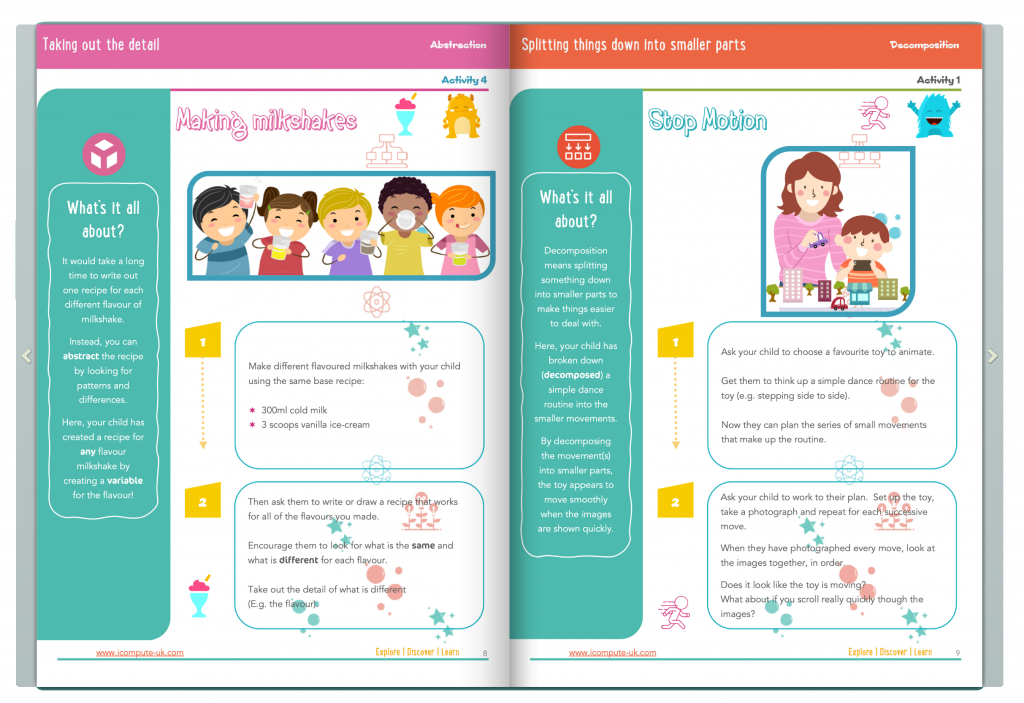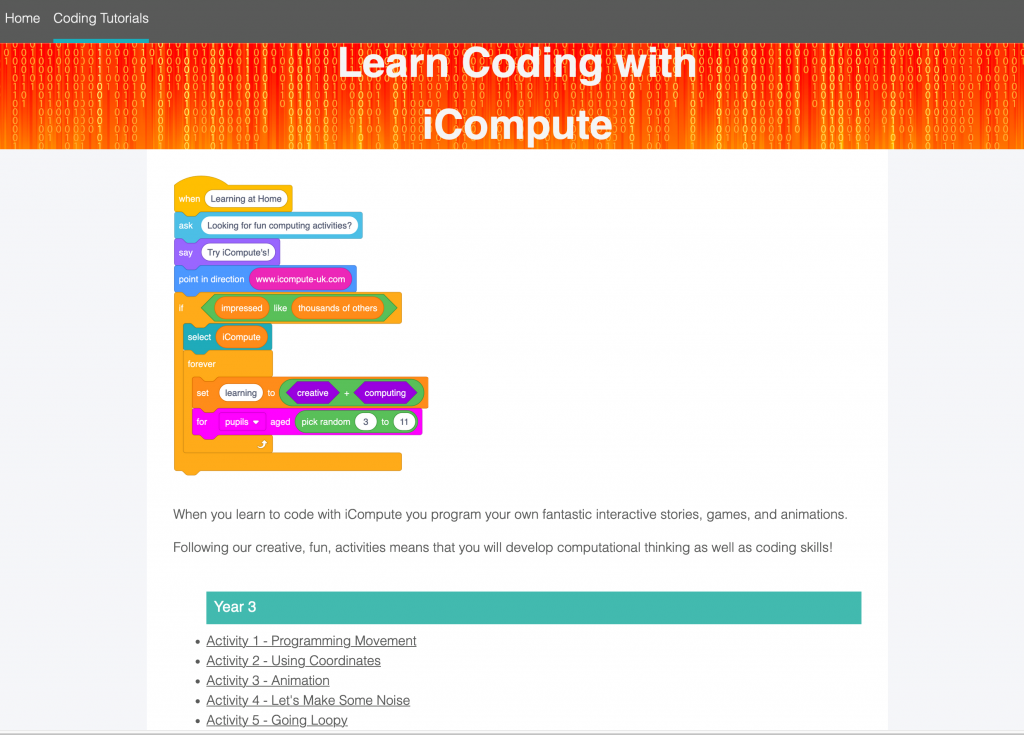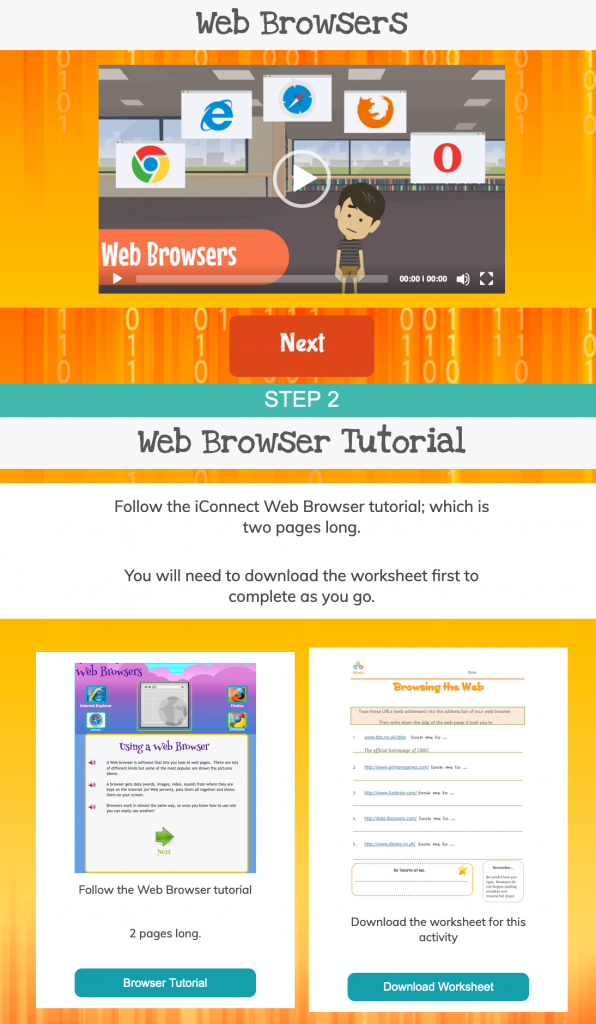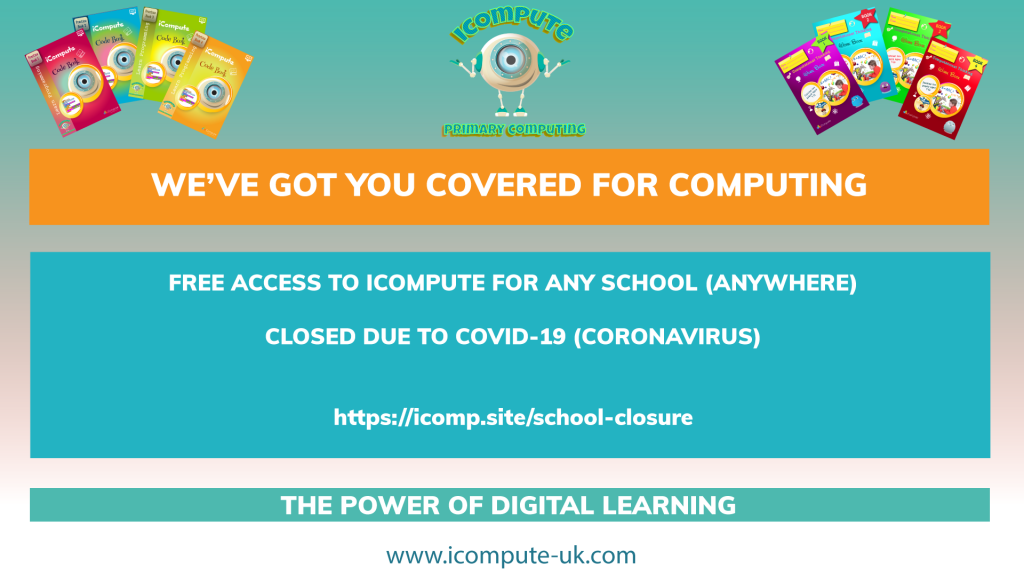
At iCompute we recognise the huge impact that COVID-19 (coronavirus) has had on school communities and learning and we want to help. In situations such as these the power of digital home learning becomes increasingly evident – and important.
We are passionate about preparing children for living in the modern digital world. We teach children about and with technology. We want to encourage as many children as possible to engage with computing around the world and have created a set of home learning resources to support schools, parents and pupils continue to learn at home no matter where they are.
Created by our author, a primary computer science master teacher, we have fantastic, engaging, resources and activities suitable for children aged 4-11. They are split into Key Stage 1 (ages 5-7) and Key Stage 2 (ages 7-11).
Key Stage 1
Key Stage 1 activities are for younger children learning with their families and are computing unplugged – i.e. you do not need computers or devices.

Key Stage 2
Our Key Stage 2 activities include online step-by-step interactive tutorials teaching coding using a variety of free programming languages. They are designed for children to use on their own and to use them you need computers/devices with access to the Internet.
Learn Programming Tutorials

Online Lessons
We have also converted our lesson plans designed for face-to-face teaching to online lessons. Subscribing iCompute schools get priority access to these resources which include:

- 🎦 Explainer animations covering the whole-class teaching section of lessons
- 🎞 Video clips
- ⛓ Links to online resources
- 👣 Step-by-step activities
- 💪 Challenge activities
- 🗒 Worksheets and pupil resources
These resources are compatible with cloud-based learning platforms such as Google Classroom.
What all activities have in common is that they are underpinned by developing computational thinking: the fundamental principles of computer science.
We hope you enjoy the resources and encourage you to share them so that children everywhere can benefit from them.
Visit our website for more information about highly acclaimed series of primary computing schemes of work, computing curriculum and resources at www.icompute-uk.com





